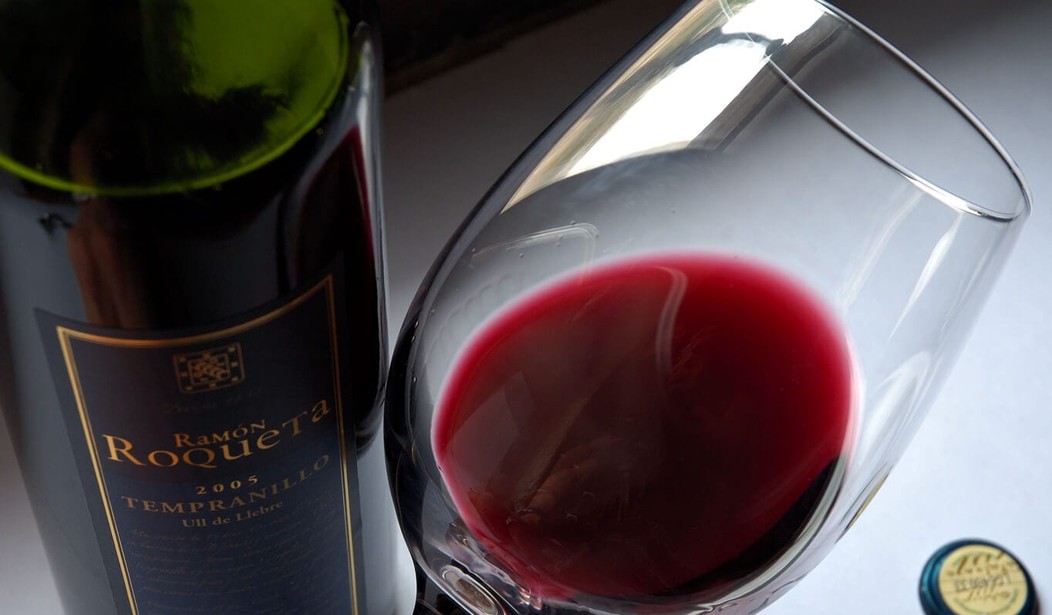Dëvar Torah – Parashath Va’Éra’ (Exodus VI.2-IX)
In the latter part of last week’s parasha, we read of Moshe’s return to Egypt from Midyan, having accepted the historic task of liberating the bënei Yisra’él from their bondage and leading them to their destiny as the Torah Nation. As he re-entered Egypt, he met his brother Aharon, whom G-d had appointed his spokesman. Aharon informed the rest of Israel of Moshe’s mission, and then they both went to petition Pharaoh for Israel’s release. Pharaoh contemptuously rejected their petition: …Lamma Moshe vë’Aharon tafri‘u eth ha‘am mima‘asav? Lëchu lësivlotheichem! (“Why, Moshe and Aharon, do you disturb the people from their jobs? Go to your labors!” V,4). Moreover, he increased the slaves’ already heavy workload, leaving the quota of bricks to be made the same as before, but adding the requirement that they gather their own straw to temper the clay of which they were made, ki nirpim hém, ‘al kén hém tzo‘aqim lémor, Nélëcha vënizbëcha lÉlo-heinu (“for they are idle, therefore they cry out, saying, Let us go and sacrifice to our G-d”; ibid., 8).
As a result, the bënei Yisra’él come to Moshe and Aharon with bitter recriminations: …Yére’ Ha-Shem ‘aleichem vëyishpot asher hiv’ashtem eth réychénu bë‘éynei Far‘o uvë‘éynei ‘avadav lathéth cherev bëyadam lëhorgénu (“May Ha-Shem appear to you and judge that you have made our odor stink in the eyes of Pharaoh and his servants, placing a sword in their hand to kill us!” ibid., 21) Moshe was moved to cry out: Ad-nai, lamma haré‘otha la‘am haze? Lamma ze shëlachtani? Umé’az ba’thi el Par‘o lëdabbér bëshimcha héra‘ la‘am haze vëhatzél lo’ hitzalta eth ‘ammecha (“Why have You made it worse for this people? Why did You send me? And since I came to Pharaoh to speak in Your name it has been made worse for this people and You have surely not rescued Your people”; ibid., 22-23). Ha-Shem responded: …’Atta thir’e asher e‘ese lëFar‘o ki bëyad chazaqa yëshallëchém uvëyad chazaqa yëgarëshém mé’artzo (“Now you will see what I shall do to Pharaoh, for with a strong hand he will send them forth and with a strong hand he will drive them from his land”; VI,1).
Our parasha opens with Ha-Shem’s assurance that He was prepared to keep His promises to the Patriarchs, that He had heard Israel’s bitter outcry, and would now remember His covenant. Therefore, Moshe was to tell them: Ani Ha-Shem, vëhotzé’thi ethchem mitachath sivloth Mitzrayim, vëhitzalti ethchem mé‘avodatham, vëga’alti ethchem bizroa‘ nëtuya uvishfatim gëdolim. Vëlaqachti ethchem li lë‘am…. (“I am Ha-Shem, and I shall bring you out from under the sufferings of Egypt, and I shall rescue you from their service, and I shall redeem you with an outstretched arm and with great judgments. And I shall take you to Me for a people….” ibid., 6-7).
The four verbs underscored supra are the famous arba‘ lëshonoth shel gë’ulla (“four terms of redemption”) celebrated each year at the Passover séder with the arba‘ kosoth, the obligatory four cups of wine (Shulchan ‘Aruch, Orach Chayyim 472:9). The discerning reader will note, however, that the grouping is neither obvious nor natural. The first three lëshonoth occur together in verse 6; the fourth follows in verse 7. But verse 8 also contains what could arguably be called a lashon shel gë’ulla: Vëhévéthi ethchem el ha’aretz asher nasa’thi eth yadi lathéth othah lë’Avraham lëYitzchaq ulëYa‘aqov (“And I shall bring you to the land which I raised My hand to give to Avraham, to Yitzchaq, and to Ya‘aqov….”)
By what criterion, then, did the Rabbis decide that there were four lëshonoth, including vëlaqachti of verse 7 but excluding vëhévéthi of verse 8, rather than, say, three (comprising the three of verse 6) or five (including all of them)? Secondarily, what led the Rabbis to decree that these four ëshonoth be celebrated with four cups of wine, specifically, rather than four of any other sort of food?
Despite the fact that the commentaries and halachic authorities generally speak of arba‘ lëshonoth shel gë’ulla, it is interesting that the only Talmudic source which mentions them (Yërushalmi Pësachim X, 1; cf. Rambam, Hilchoth Chamétz uMatza VII,7, Rabbénu Manoach ad loc., but cf. also Shëmoth Rabba VI,5) tells us that the arba‘ kosoth represent arba‘ gë’ulloth (“redemptions”). As the Torah Tëmima notes, this much more straightforwardly refers to the four historical stages of Israel’s liberation, rather than some number of synonyms for it. These stages were:
Vëhotzé’thi: The sivloth Mitzrayim, the intolerably heavy workload and harsh conditions elsewhere called ‘avodath perech (“had labor,” cf. Exodus I,13) were alleviated first. The Talmud (Rosh haShana 11b) tells us that these conditions were lifted on Rosh haShana, i.e. six and a half months before the Exodus. Relief from the brutal, stultifying, soul-destroying régime restored to the Israelites their sense of humanity.
Vëhitzalti: But they were still human chattels. Therefore the next stage was to alleviate them from their servile status. The Ha‘améq Davar notes that this happened after the plague of Barad (“hail”), where for the first time we read that Pharaoh refused to send out the bënei Yisra’él (IX,35) as opposed to the more generic ‘am (“people”). This use of the shém hama‘ala, the name which indicates the exalted Israel, he suggests, indicates the change in the Israelites’ status in the eyes of the Egyptians, such that they were no longer considered slaves.
Vëga’alti: Nevertheless, they remained under Egyptian sovereignty. With the Makkath Bëchoroth, the Plague of the First-Born, Ha-Shem’s promise to Moshe at the end of last week’s parasha that Pharaoh would expel Israel from Egypt was fulfilled, and Israel achieved the status of free men.
Vëlaqachti: Finally, now that Israel was subject to no other nation, “stateless,” as it were, G-d gave them citizenship in the Malchuth Shamayim (“Kingdom of Heaven”) creating at Sinai the mamlecheth kohanim vëgoy qadosh (“kingdom of kohanim and holy nation;” Exodus XIX,6).
All of this is well and good, but surely our question remains unanswered: Now that they had “citizenship,” was not bringing them home to Eretz Yisra’él the final redemption? Why is there no kos corresponding to vëhévé’thi?
A hint at the answer may be found in the very same Yërushalmi. A bit later on, the four kosoth are also related to the four malchuyoth (“kingdoms”), i.e. the four exiles through which Israel was destined to pass: the Babylonian, the Persian, the Greek, and the long and bitter exile in which we still find ourselves, the Roman.
Israel has been in existence a bit over 3328 years (this year is 5777; the Exodus and Giving of the Torah took place in 2448). Of these years, the present (Roman) exile has lasted 1,946 years; the Babylonian exile lasted 70 years; the Persian period lasted 52 years; and the Greeks ruled over us, from Alexander to the Chashmona’i revolt, for 174 years. Thus, Israel has spent over 2200 years, the bulk of her national existence, in exile, and the end is not yet.
All of the stages in Israel’s liberation celebrated at the Passover have been permanent ones: We have never since labored over Egyptian bricks, or been slaves or subjects of the Egyptians; and we remain the Torah Nation. But our permanent settlement in Eretz Yisra’ él, the establishment of the Bayith Shëlishi, the Third Temple, is yet to be, still in the realm of a Divine promise. That said, we note that there is, after all, a fifth kos on the séder table, that of Eliyahu haNavi’, symbolic of our hope in that he will be the harbinger of the Messianic Age.
We are left with our question: Why wine? How does wine commemorate the gë’ulla?
The Ha‘améq Davar observes that all of the changes indicated by the four lëshonoth are essentially changes in attitude and mental state: first, the re-awakening of the human being in what had been a beast of burden; then, the emancipation from slavery; then, liberation from the yoke of Egypt’s sovereign and hedonistic culture; finally, the voluntary assumption of the yoke of the Kingdom of Heaven. There is no foodstuff more conducive to changing, indeed, exalting one’s mental state than wine; as King David sang, vëyayin yësamach lëvav enosh (“and wine gladdens the heart of man”; Psalms CIV,15).
Thus far the Ha‘améq Davar; I would humbly add an observation of my own.
Israel’s elevation to the role of Torah Nation required passage through the crucible of Egyptian bondage, a page which was not without cost: as Rashi observes, commenting on Exodus X,22, a considerable number of Israelites who did not wish to leave Egypt perished under cover of the plague of darkness. The righteous remnant, cleansed of dross and forged in the Mitzri furnace, merited to stand at Sinai.
So, too, wine is produced by crushing the grape to extract the juice, the pulp being discarded. But what differentiates wine from any other fruit whose juice we drink is that wine (or grape juice, both kosher for the séder) is the only drink whose blessing is exalted, on a higher order than that of the fruit from which it is extracted (most fruits require the blessing boré’ përi ha‘étz before being eaten, while their juices require shehakol nihya bidvaro, the lowest-level blessing; cf. Shulchan ‘Aruch Orach Chayyim 211:4, Hagah).
How fitting that the process which resulted in Israel’s creation be celebrated by wine!









Join the conversation as a VIP Member